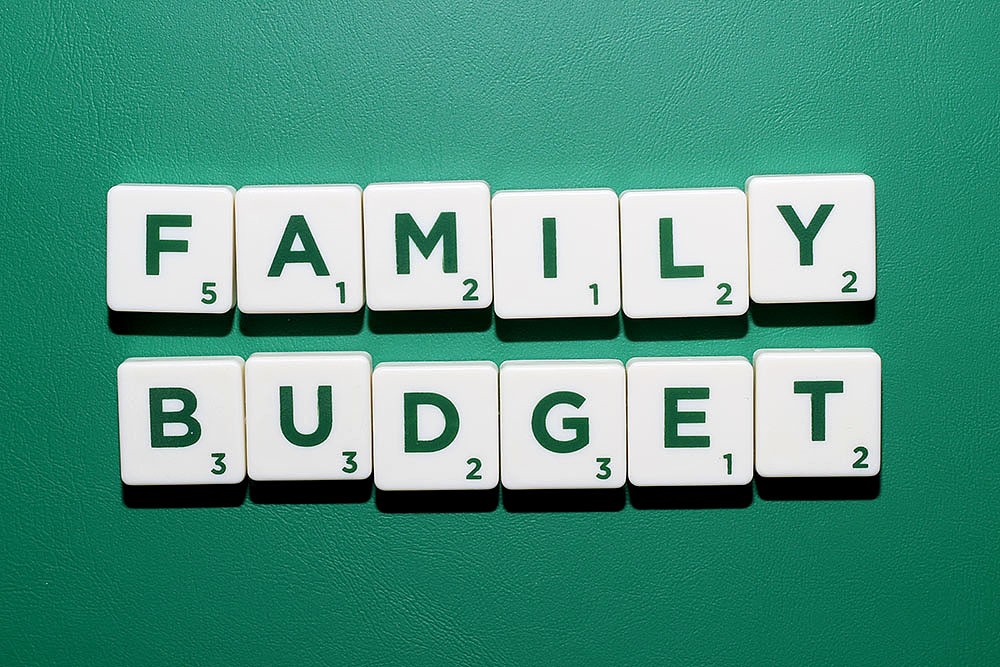Budgeting is hard. To be honest, it’s something that will evolve as our lives do. My life with toddler twins is very different from my life as a single person and even as a DINK couple (Double Income No Kids). The days of lots of brunches and shopping are gone. I do treat myself and keep a fun budget, but our money goes to different things.
Our Monthly Cash Flow Breakdown
Here’s a glimpse into how we spend our income. We are both employed full-time. We max out our retirement accounts at $19,500 each, with a mix of 401K and 401K Roth contributions.
- We spend 60% of our take home pay on mortgage and preschool. Yes, 60% of our take home pay goes to our home (mortgage + interest + real estate taxes) and preschool for twins.
- We save 16% in a liquid money market account and taxable brokerage accounts.
- The rest is for monthly bills (car loan, groceries, diapers, electric, heating oil, TV + cable, car + umbrella insurance).
- I also leave a buffer for quarterly bills (town water, garbage + recycling), as well as random bills (lawn, pest control, and snow plowing).
You can see that being single or married with no kids, in an apartment or condo, is very different from owning a house with children. It took me over a year to get used to the changes, budget accordingly, and reduce my grocery bill to make it all work. Even then, life throws you a budget curveball. In my case, it was the annual bills for our new term-life policies. Protection is pricey!
So — now what I do to ensure success with our budget? Here are my top five weekly budget review steps.

- Checking Account Review. It’s good practice to use your checking account to fund your regular bills. As such, you should review your checking account balance every week to get familiar with your cash flow.
- Any sinking funds should be in your money market account, be it at the same bank, or better yet, at a high-yield savings account.
- Ally, Capital One, Amex, + Marcus are all FDIC-insured and offer high-yield savings accounts.
- Pending Charges. Be aware of current charges and pending charges, be they on your debit or credit card.
- If you use a credit card (only if you are able to pay on time + use responsibly), look not only at your current balance, but also at your available credit. That will show you your true balance because it will take into account pending charges.
- Remember monthly charges that haven’t hit yet as well, such as Netflix or your cell phone.
- Credit Card Cycle Date. When you first start to really budget and watch your expenses, it is helpful to know when your credit card cycle ends. For me, it’s especially helpful with regard to grocery shopping.
- For example, if your billing cycle ends on the 10th of each month and it’s the 7th, it’s helpful to know that you may need to work with the food you have for a few more days.
- Seasonal Bills. Somewhere you need track of non-monthly bills.
- These could be property taxes, water + sewer bills, trash pick-up, insurance (life, auto, home, umbrella), you name it. Adulting comes with a lot of bills!
- Be prepared. If it’s hard for you to have one savings account for emergency and sinking funds, consider Ally or Capital One because they allow multiple savings buckets.
- Food Inventory. Grocery, takeout and dining are the easiest ways to cut your monthly spending, in my opinion. There are only so many media subscriptions to cut and they don’t move the needle enough.
- My swing on food spending has been as high as $300-400. For example, in the early COVID quarantine panic days, I spent as much as $1,000 in one month on food, diapers, household items, powdered milk — you name it. Panic much?! Then I decided to get it under control.
- Now I aim for about $700 for groceries + diapers + paper items, with another $100 for coffee, fast food and/or takeout. That allows me to exercise willpower when I find myself on the Target app and I want to pick up random pantry items.
Weekly reviews of your bank and credit card accounts also helps to catch fraudulent charges and eyeball regular subscriptions, which you may want to pause, downgrade, or eliminate entirely.
*As always, this information is educational. Investment questions should be directed to a licensed CFP and tax questions should be directed to your CPA.*





This is a great budget awareness post! For us, knowing when registrations and payments are due for activities/sports the kids are in is huge as well. Having 4 kids, there are months when this alone adds up to a couple thousand dollars or so that we needed to be prepared for.